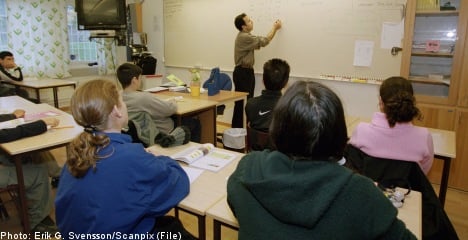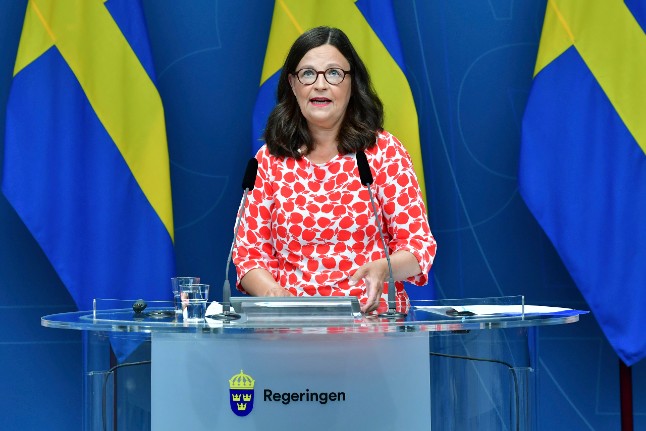“Mathematics isn’t just any subject. It is a fundamental and basic skill that is completely decisive for Sweden as an industrial nation and for our country’s prosperity,” said minister for education, Jan Björklund, to news agency TT.
The reason behind the slipping standards in maths, Björklund believes, is partly due to non-qualified teachers and partly that the teaching methods are inadequate.
He also said that Sweden has the most hours of independent study in mathematics among EU and the OECD countries.
“Students learn mechanical counting but have no idea what they are doing,” Björklund said.
The government is therefore stepping in with a new drive and will also be influencing the method of teaching – didactics – in Swedish schools.
There will be more lecture-based teaching, where the teacher teaches and explains more.
“It is a new phenomenon that the state steps in and has a say in pedagogical methods but this is so much in the nation’s interest that we can’t just sit still and do nothing,” Björklund said.
The spokesperson for education for the Social Democrats, Mikael Damberg, welcomes the government’s initiative.
“I think that it is a good thing if the National Agency for Education (Skolverket) suggestion can be implemented, because we have been seeing sliding maths results in Swedish schools,” he told TT.
Damberg also pointed out that it isn’t just in one subject that Swedish results have fallen. He thinks that more investment into several subjects and more long-term campaigns to help Swedish teachers are needed.
However, Damberg thinks that Björklund ought to leave the teaching methods to be determined by the teachers.
Chairperson for Sweden’s Teacher’s Union (Lärarförbundet) Eva-Lis Sirén, also welcomes the government’s initiative to raise maths results in Swedish schools.
However, she too questioned the minister’s wish to get involved in how teachers conduct and manage their work.
“It is remarkable that the minister is meddling in how teacher’s should work. This is just one example of the depreciation of teachers’ competence in Sweden,” she told TT.





 Please whitelist us to continue reading.
Please whitelist us to continue reading.
Member comments